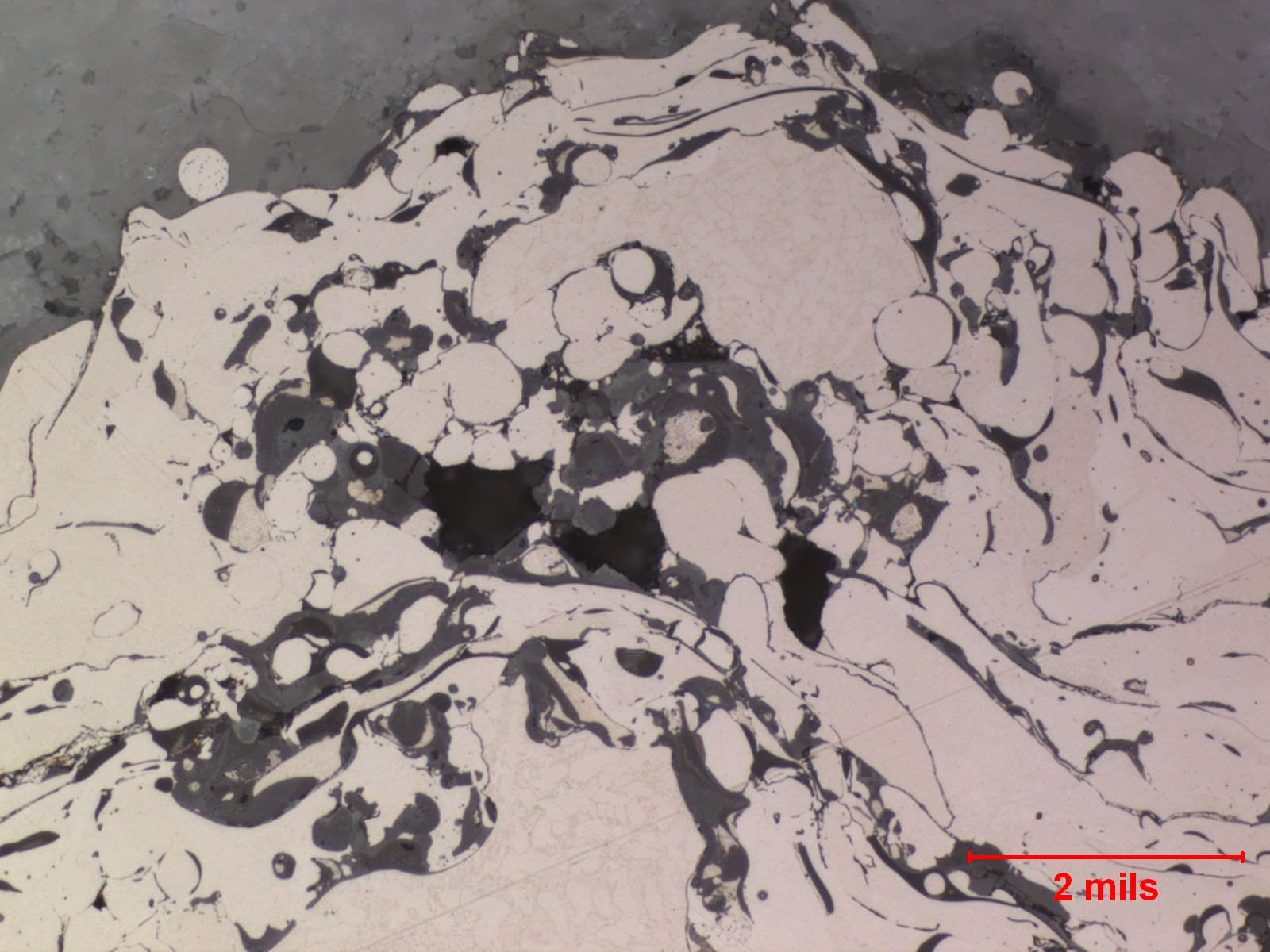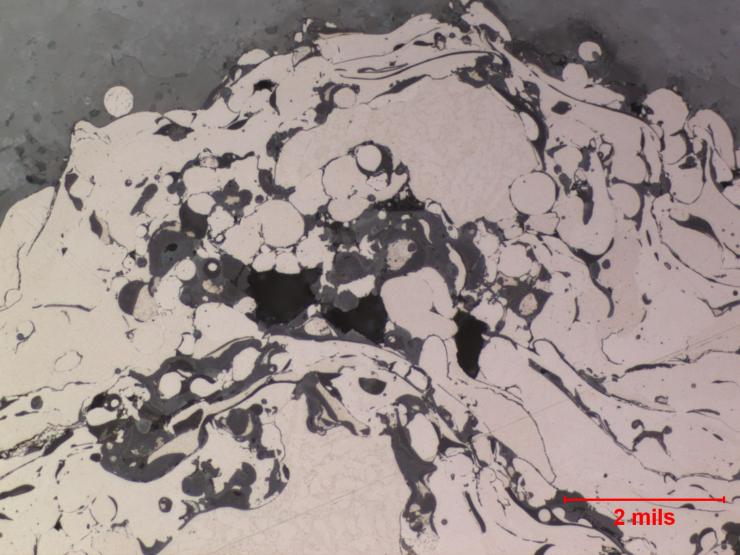For equipment that operates in harsh or demanding environments, thermal spray coatings offer a secondary layer of protection against environmental conditions and contamination on new parts, or a restorative layer to extend the service life of a worn component. Thermal spraying applies a coating onto a substrate with a range of available materials to improve performance. The type of coating material used may vary based on the needs of a given application, making it essential to choose the correct coating in advance. Making the incorrect choice can lead to premature coating failure, which subsequently leads to failure of the original substrate.
Thermal spray coatings can be applied across large or small surfaces, making them ideal for myriad applications where large equipment or structures need additional protection. For example, the aerospace sector often uses thermal spray coatings to enhance wear resistance, thermal protection, and corrosion in components throughout turbine engines.

Benefits Provided by Thermal Spray Coatings
Thermal spray coatings deliver several benefits for manufacturers, including:
- Increased resistance
Thermal coatings can be used to increase resistance to wear, erosion, cavitation, corrosion, abrasion, heat, chemicals, and more.
- Additional material characteristics
Certain thermal spray coatings can be used to enhance or apply desired characteristics to a substrate, such as electrical insulation or conductivity, high or low friction, lubricity, sacrificial wear, thermal protection, dimensional restoration, and chemical resistance.
- Increased service life
Thanks to improved resistance to environmental factors, thermal spray coatings may drastically increase the useful life of a part or surface.
- Revitalization
Even if a substrate doesn’t begin its service life with a thermal spray coating application, applying one at a later production or implementation stage can facilitate repair or re-engineering of worn or damaged components.

Industry Applications for Thermal Spray Coatings
Many industries use thermal spray coatings to add enhanced properties to components. Thermal spray coatings are especially useful for parts that must operate under extremely demanding or harsh conditions, specifically those intended for use in the following industries:
Aerospace
High-performance aerospace components must tolerate extended service lives while withstanding extreme temperatures, drastic changes in pressure, impact stresses, and exposure to corrosive environmental elements. Because raw materials and finishing methods typically offer insufficient protection for these parts, thermal spraying is often employed to further improve the longevity and resilience of:
- Turbine blades
- Flame tubes
- HPT outer stationary seals
- Liners
- Landing gear
- Jet engine components
Power Generation
Equipment used in the fossil fuel and renewable energy sectors must tolerate extreme temperatures, varying pressures, and environmental exposure. As such, the power and energy sector uses thermal spray coating to improve the properties of a wide range of components, such as:
- Power generators
- Gas turbines
- Turbine rotors
- Compressor blades
Petrochemical
Thermal spray coatings can also be useful in the petrochemical industry, where exposure to high pressures and corrosive chemicals can severely impact the service life of equipment. Coatings are used to increase resistances on a variety of components in this sector, including:
- Pump impellers
- Pump castings
- Pipes
- Mud pump components
- Gate and ball valves
Testing Services for Thermal Spray Coatings
IMR Test Labs offers a wide range of testing services to provide a thorough analysis of thermal spray coatings. Thermal spray coatings can be tested in a variety of ways to ensure fitness for a given application or determine causes for failure. These methods include:
- Metallographic analysis
Our metallographic analysis explores a number of factors, such as thickness, porosity, presence or absence of unmelted particles, cracks, delaminations and separations, coating oxides, and interface contamination.
- Microhardness measurements
IMR utilizes microhardness testing to measure the average hardness and distribution of microhardness in small or thin coating samples to better determine the coating’s resistance to impacts and punctures.
- Mechanical testing
Our staff employs mechanical testing to examine the cohesion or adhesion of the coating and how well it tolerates bending.
- Testing for service properties
These tests verify the specific beneficial properties of a thermal spray coating, such as wear or corrosion resistance.

Expert Analysis from IMR Test Labs
At IMR Test Labs, we believe in “not just data, knowledge.” Many laboratories can analyze thermal spray coatings, but gathering data is only the first step. Our highly educated IMR team of engineers, chemists, lab technicians, and support staff has extensive experience analyzing thermal spray coatings, interpreting the results, and applying those findings to specific applications.
To find out more about how IMR Test Labs can help with your thermal spray coating analysis, or to learn about our other testing services, please email us, request a quote, or call 1-888-464-8422 to speak to one of our knowledgeable staff members.


